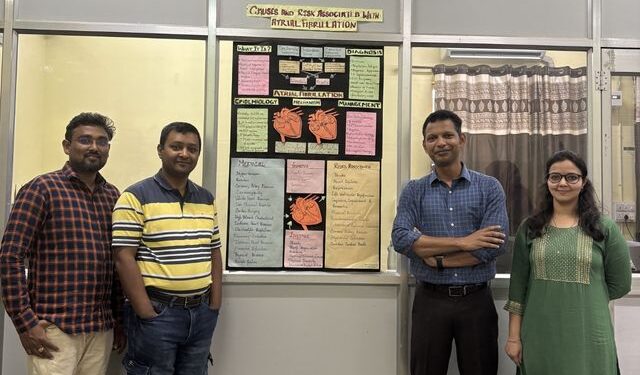Researchers at National Institute of Technology (NIT) Rourkela have developed an innovative upgrade to standard Electrocardiography (ECG), significantly improving the detection of atrial arrhythmias.
The new Atrial Lead System (ALS) enables clearer identification of P-wave signals, helping healthcare providers diagnose irregular heart rhythms more effectively, without requiring modifications to existing ECG machines.
Arrhythmias in the heart’s upper chambers are linked to stroke and serious cardiac conditions, making accurate detection crucial. However, traditional ECGs often fail to highlight subtle electrical signals due to background noise. The ALS method optimises lead placement, strengthening the signals captured from the atria, leading to improved clinical diagnosis and treatment decisions.
Dr. J. Sivaraman, research lead from NIT Rourkela, explains, “Our novel lead arrangement ensures a sharper P-wave, allowing doctors to distinguish atrial abnormalities with higher precision. This innovation can be implemented without additional equipment costs, making it accessible for both private and government healthcare facilities.”
This research, conducted in collaboration with MIOT International, Chennai, has been published in international medical journals, and a patent application for the Atrial Lead System has been filed. The project was funded by the Anusandhan National Research Foundation (ANRF), Government of India.
With advancements like these, NIT Rourkela’s research bridges the gap between engineering and healthcare, reinforcing its commitment to medical innovation for better patient outcomes.





























